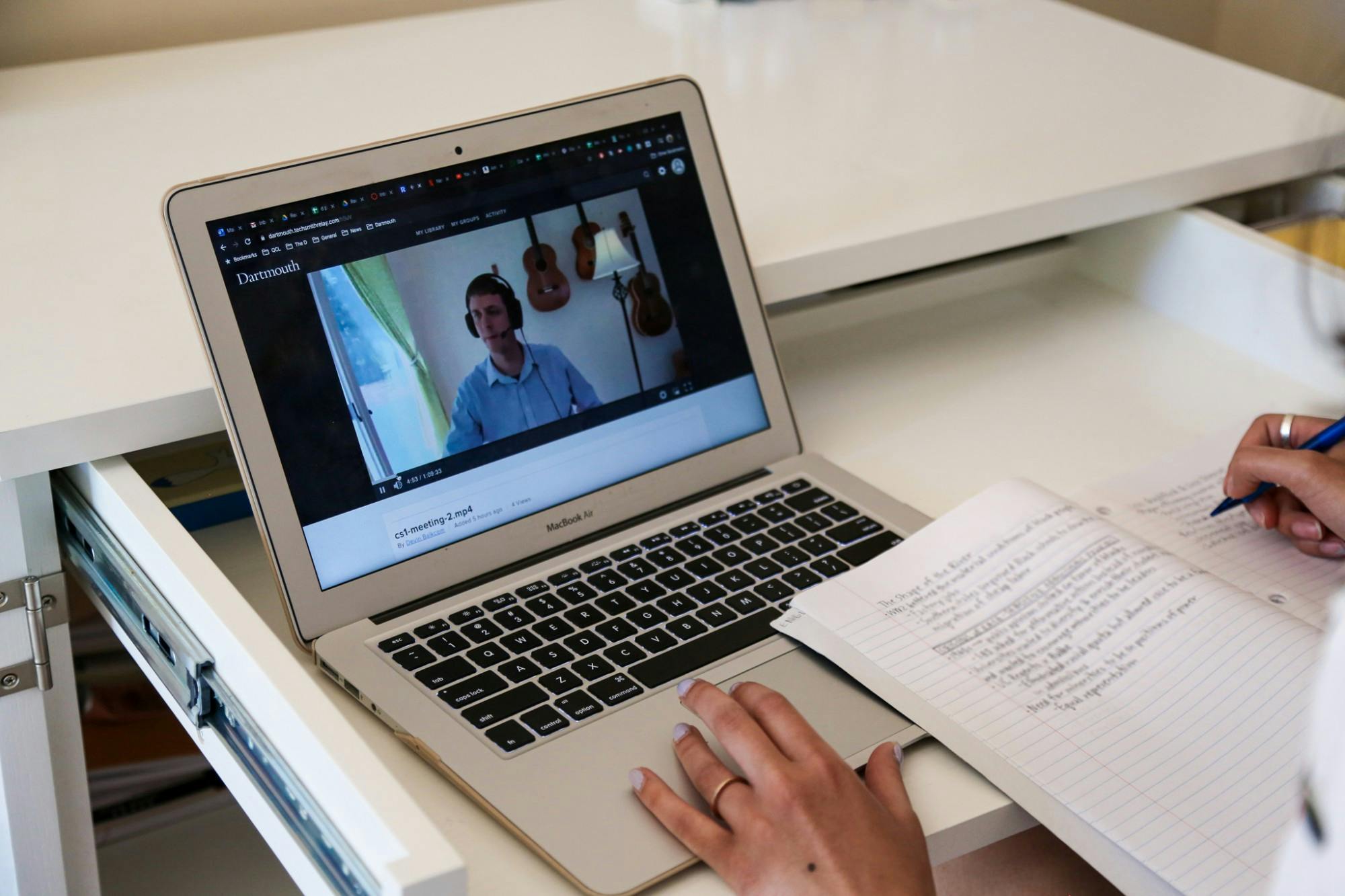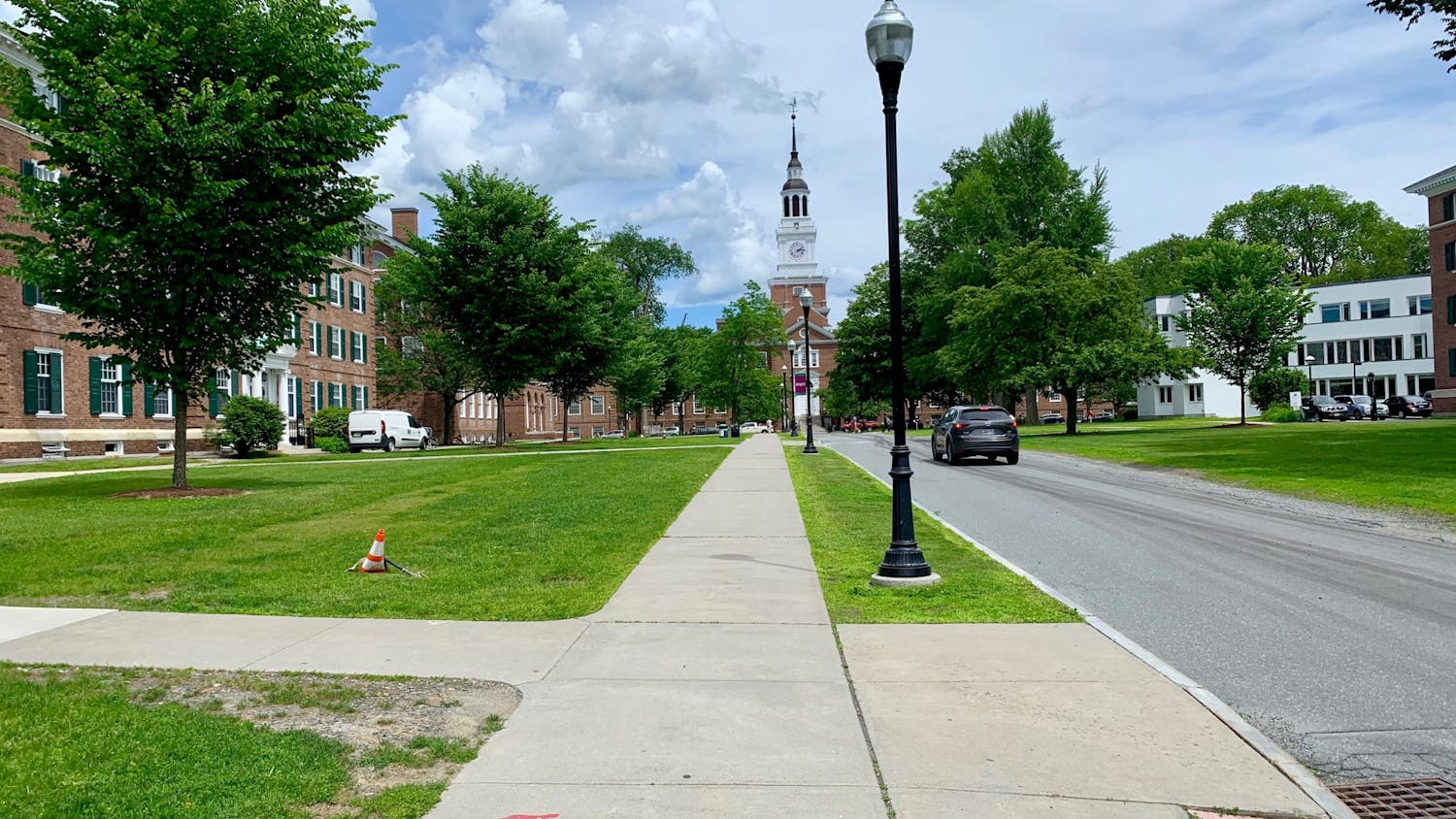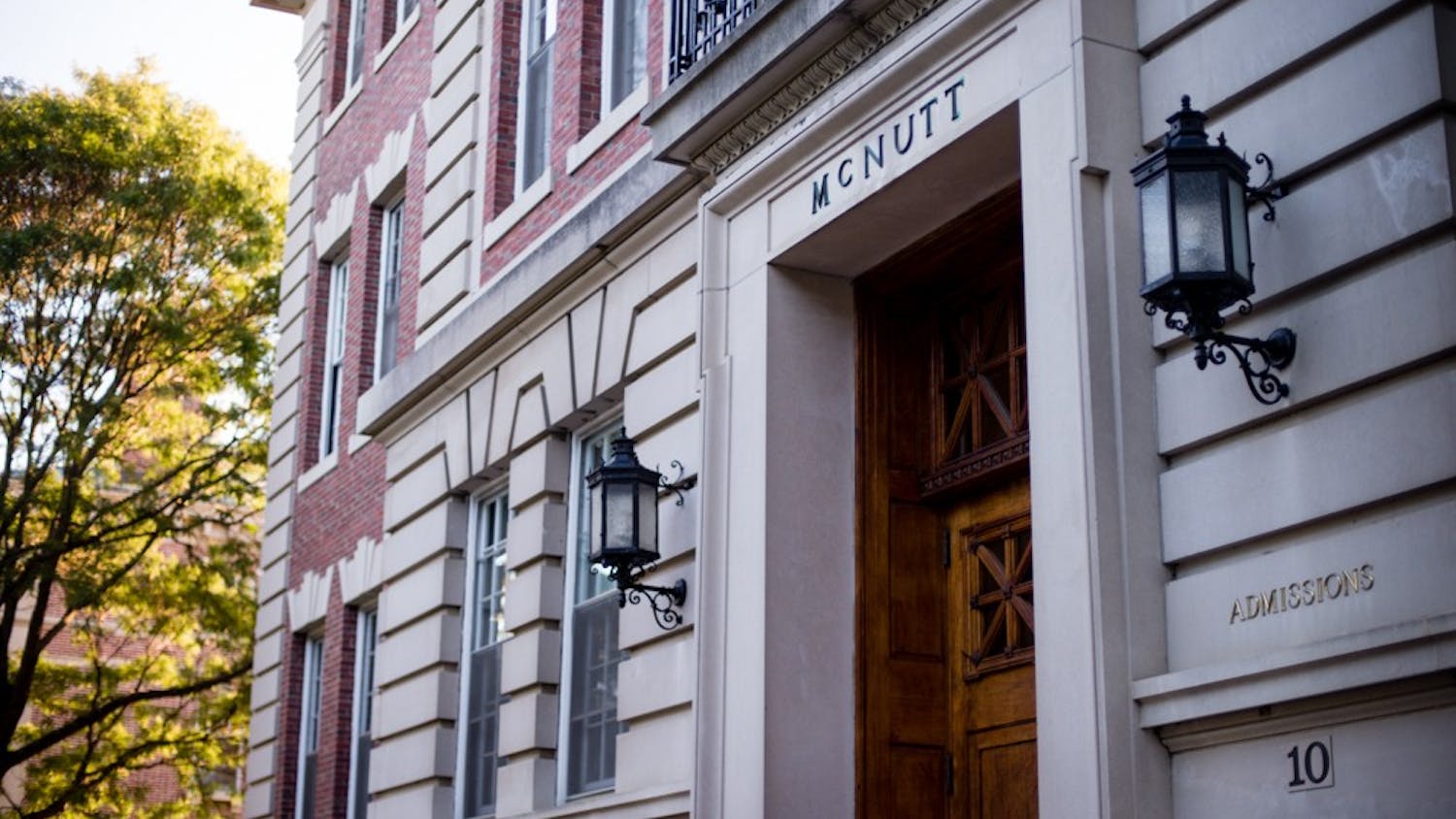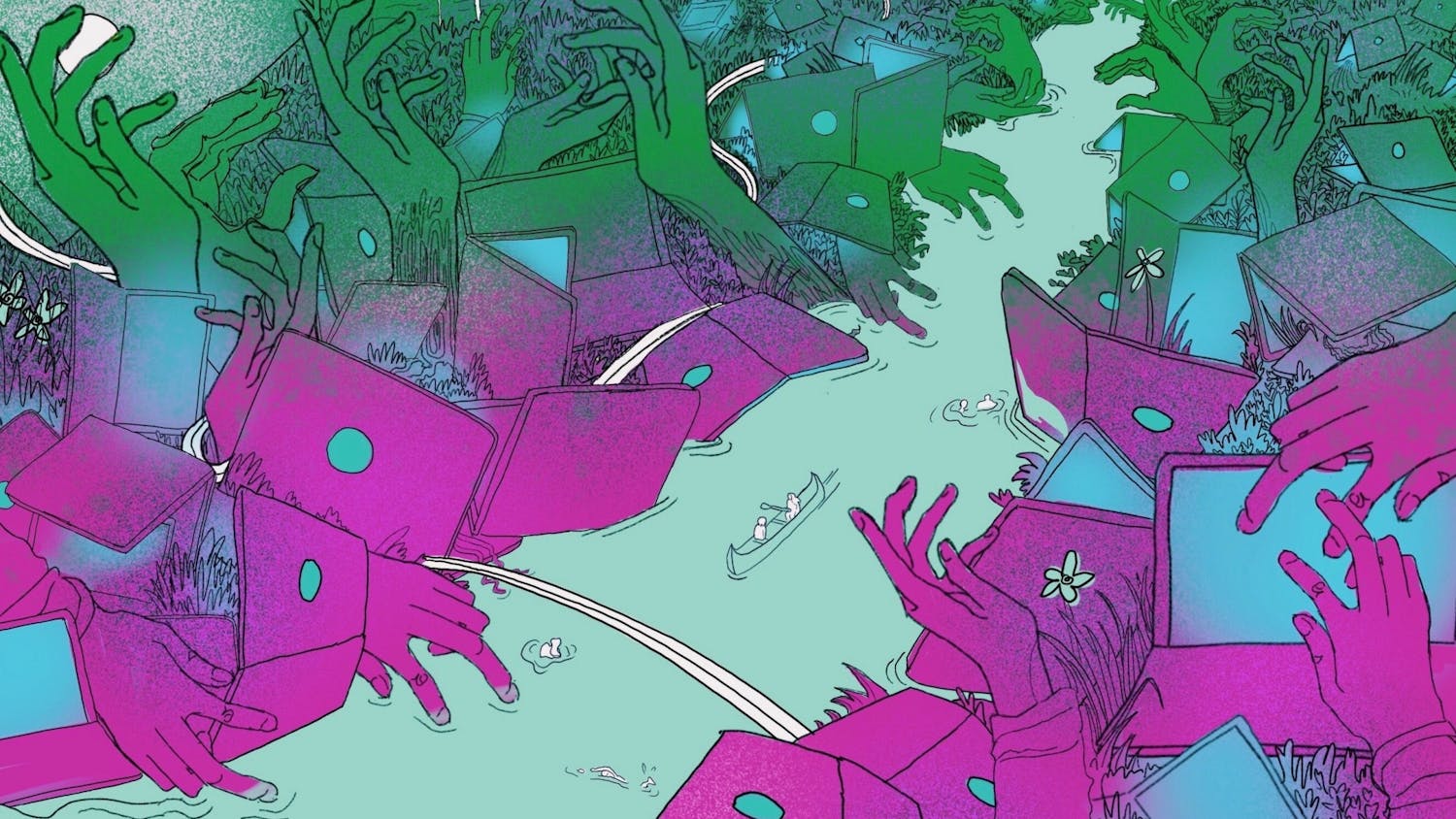The College’s Academic Honor Principle was not a casualty of the COVID-19 pandemic’s disruptions to college life. Despite concerns that the move to online learning would result in a rise in incidents of academic dishonesty, the Office of Community Standards and Accountability did not receive more reports than normal, and the number of students involved in incidents only increased “within reason,” OCSA director Katharine Strong said.
“We have seen a number of reports that is on par with what we would normally see in a spring term,” Strong said, adding that the number of “involved students” has ticked up slightly but remains within a normal range. She declined to give a specific number, noting that the data was not yet finalized for the term, but said that the figures are typical of previous years.
The 2018-2019 academic year — the last one for which records are available — saw 33 students referred to the Committee on Standards for academic honor cases. The numbers have varied from year to year for the past decade, according to the report, and the long-term average is 31 cases per year.
Notably, the 2014-2015 academic year saw a spike in cases due to a single event — 64 students were charged with academic honor violations after an incident involving clickers in REL 13, “Sports, Ethics, and Religion” in the fall of 2014. As an outlier, that case’s data is not included in the OCSA’s ten-year average.
Strong said that cases have gone up during this academic year as a whole, though not because of an increase in the spring. The increase is partially driven, she said, by a rise in cases of “collaboration outside the scope,” which necessarily involves multiple students. “Unauthorized collaboration” represented 46% of cases last year.
“There’s been more this year than there were last year, but not so many that I would say there’s suddenly more activity,” she said. “I would just say that, within reason, there is more.”
Professors who taught in the spring largely agreed that the term did not see an irregular level of academic dishonesty, but that assessment came with a number of caveats. To start, professors do not actively look for cheating anyway — the assumption, under the Dartmouth honor principle, is that students will remain honest, which is why most exams are unproctored in normal times.
“Part of the deal on the faculty side is that we are not actively looking for cases of academic dishonesty,” earth sciences professor Robert Hawley said. “I think I take that to heart — I’m not going around saying, ‘Oh, is this somehow copied from someone else,’ I’m not looking through plagiarism sites.
He said that, in both online and on-campus classes, if a Dartmouth student wants to cheat and does it well, they’re unlikely to be caught “because we’re not actively looking.”
“The only ones who are likely to be caught are the ones who are not doing it well,” Hawley added.
Additionally, in some classes, there were less opportunities to cheat because conduct that would normally be considered out-of-bounds, such as collaboration on problem sets and consulting notes during exams, was allowed.
“I judged that the best way to avoid any concern about cheating on an exam was to make the exam as uncheatable as possible,” Hawley said. This meant opening the exam for 24 hours and allowing the use of any class materials.
“The idea was to eliminate any temptation to look in your notes or look in your book if you just couldn’t figure something out immediately,” Hawley said. He did not see any incidents of academic dishonesty in his spring class: EARS 70, “Glaciology.”
“I realized I can’t police that,” economics professor Elisabeth Curtis, who taught ECON 1, “The Price System” in the spring, said of students using other materials during exams. She maintained time limits on her tests, but also made them open-note and open-book and weighed other assignments in the class, like participation and problem sets, more heavily when calculating final grades.
“I felt I had to have the playing field level for everyone,” Curtis said.
Hawley added that there is a “grey area” between work that is done collectively with other students and work that is simply copied from other students, which is why he kept collaboration — unlike consulting class materials — off the table. Such a rule was, he acknowledged, unenforceable remotely, and he may modify it for future online classes.
Philosophy professor Timothy Rosenkoetter said that the format of his two spring classes — PHIL 6, “Logic and Language” and PHIL 16.02, “Kant on Moral, Legal, and Political Philosophy” — likely made a difference in the amount of academic dishonesty that took place. The latter largely relied on papers as assessments, which aside from plagiarism are difficult to cheat on.
The former, however, used traditional exams that were not open-book, and Rosenkoetter said that some questions on them may have lent themselves to out-of-bounds behavior.
“I suspect that there was probably a time or two during the class when some student, who otherwise didn’t do anything dishonest, succumbed to the temptation to go ahead and look in the book for that one definition where she just couldn’t remember,” he said, stressing that he was making an “educated guess” about what may have happened. “And look, I don’t think — if that happened — that that was a terrible thing. It was credit/fail, and I don’t think anyone passed the class as opposed to not passing the class because of something like that,” Rosenkoetter added.
Indeed, several professors speculated that the credit/no credit nature of grading in the spring more likely led to a reduction in academic dishonesty.
“I think that [the lack of traditional grading] did in fact discourage students from violating the honor code,” Curtis said. “I think that students, on purpose, were honest — a little more honest, because they realized that they had less to gain from scamming, cheating, whatever you want to call it.”
“I think it certainly results in a change in the incentive structure,” Rosenkoetter said. He suggested that the credit/no credit grading system resulted in fewer situations than he expected before the term where he was “suspicious” of untoward conduct, but added that he believes there will be an uptick now that grades have returned to a semi-normal format.
“Without making any predictions about individual cases, I would expect it to, demographically or statistically, lead to an increase in the number of de facto infractions,” he said. “It will happen more, given the change in the incentive structure, and I think it would be silly to expect otherwise.”
Hawley said that he had spoken to colleagues and had heard, anecdotally, that online cheating had become a “significantly greater problem” at other institutions. He specifically cited Chegg.com, a website where students can get homework help but where exam questions and answers can also be posted.
Several students who took CHEM 6, “General Chemistry” in the spring said that Chegg.com appeared to have been used to post questions and get answers from one of the class’s midterms. Most had heard about the alleged incident first on the anonymous chat app Librex, but Isabelle Wilson ’23 said that a friend of hers had been contacted by the OCSA after clicking on the Chegg link during the exam period.
“I’m not sure how the teacher found out about that — maybe someone reported it, maybe a TA found it, I’m not sure — but then somehow the professor got access to the information about every single person that had looked at the Chegg page during the exam window.”
Chegg did not return repeated requests for comment, but the site’s “Honor Code” page states that Chegg may not be used for cheating and that the website “will cooperate with any official investigation by an academic instruction [sic].”
Both CHEM 6 professors declined to comment. Strong, when asked about the incident, declined to comment on the specifics of the case but confirmed that it involved more than one person.
Wilson said that she felt like low-level cheating was somewhat commonplace in the class — students texting each other during exams, for instance — and that it felt unfair that only the students involved in this specific incident were caught and punished.
Ilana Deykin ’23, another student in the class, said that she did not understand why students felt the need to cheat.
“All you needed [to pass the exam] was a 50 percent, and it was open-notes, open-slides, literally all class materials. You could use the textbook,” she said.
Deykin added that she is currently taking classes online through Tufts University, which for exams uses a service called ProctorU that tracks keyboard movements and video calls students during the test. Such a service would have prevented the Chegg incident, she speculated.
Despite the incident, Strong said that research suggests the move to online alone does not actually result in more academic dishonesty. She cited one paper she had read that found that professors and students anticipate more cheating, but that “the actual instances of that are not any higher than in the normal classroom.”
“The question is not really about the space; it’s about individual integrity, and how our community holds each other accountable to that integrity when it comes to engaging in academics,” Strong said. “Students used the internet before spring term.”





